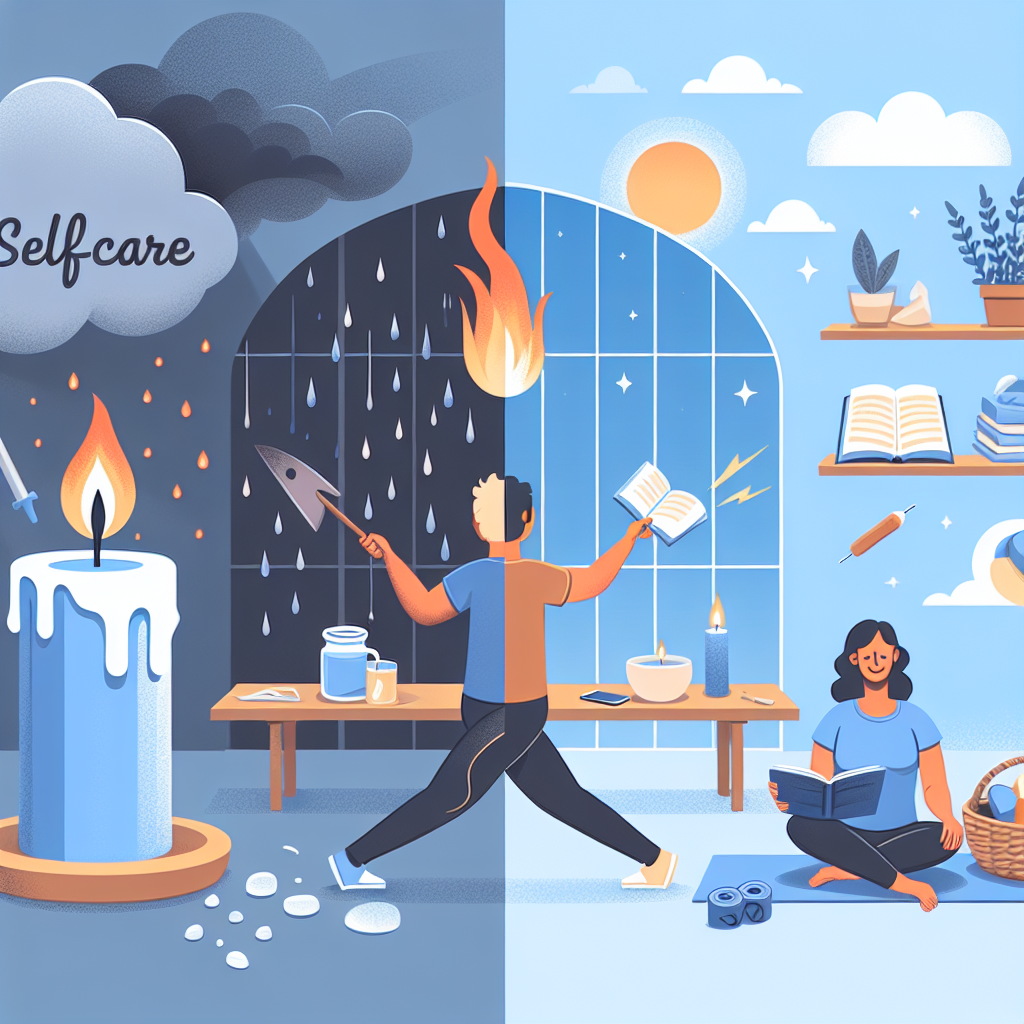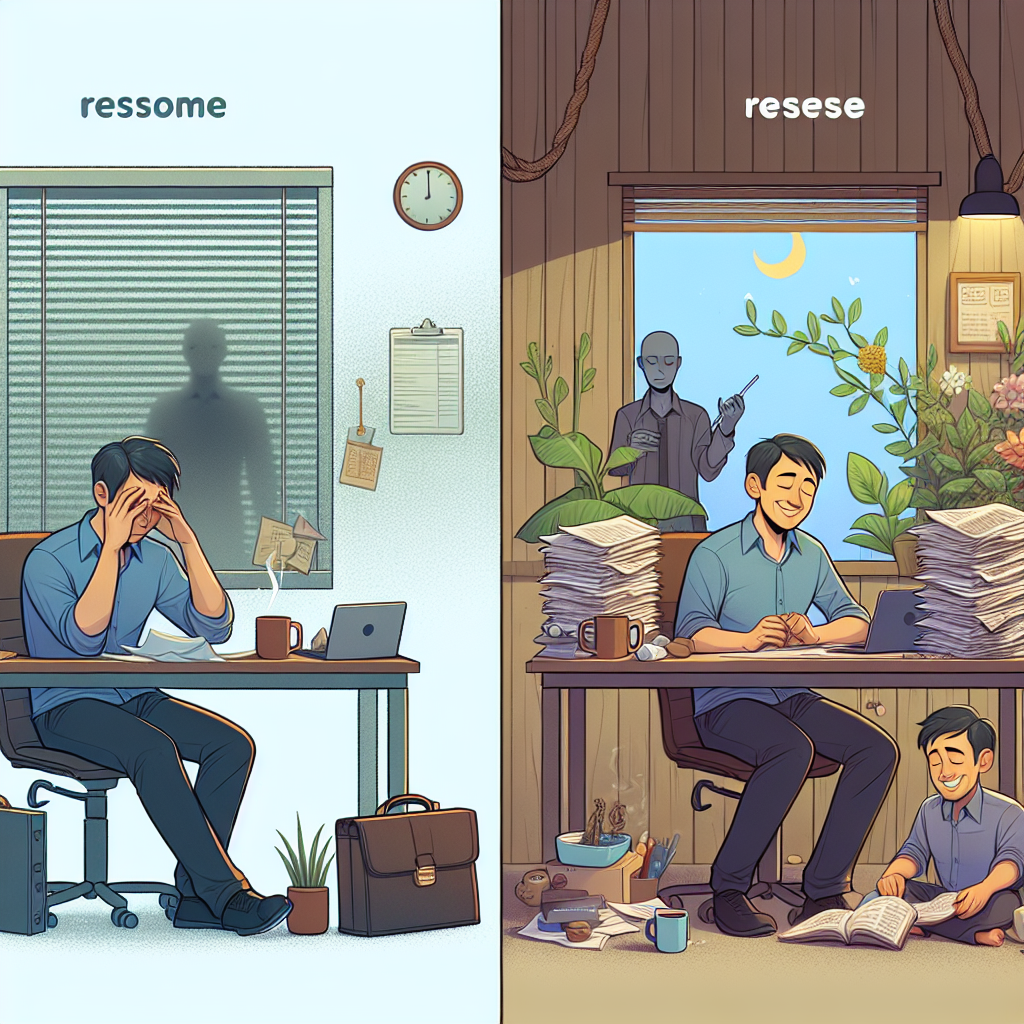The Role of Self-Care in Preventing Burnout

Discover the crucial role of self-care in preventing burnout. Learn effective strategies and techniques to maintain your mental, emotional, and physical health. Don’t wait until it’s too late, start your self-care journey today. Visit www.myvibrantvitality.com now.
Understanding the Importance of Self-Care in Preventing Burnout
The role of self-care in preventing burnout is a topic of paramount importance in today’s fast-paced, high-stress world. As we navigate through the complexities of our daily lives, we often overlook the significance of self-care, not realizing that it is a crucial element in maintaining our overall well-being and preventing burnout.
Burnout, a state of chronic physical and emotional exhaustion often accompanied by feelings of cynicism and detachment, is a widespread issue. It can result from prolonged periods of stress, particularly in high-pressure environments. The consequences of burnout are severe, impacting not only our productivity and performance but also our physical health and mental well-being.
This is where the role of self-care comes into play. Self-care refers to activities and practices that we engage in on a regular basis to reduce stress and maintain and enhance our short and long-term health and well-being. Self-care is not a luxury, but a necessity. It is about recognizing and meeting our own needs, as well as taking the time to rest, relax, and recharge.
Self-care can take many forms, depending on individual preferences. It can be as simple as taking a few minutes each day to meditate, going for a walk, reading a book, or spending time on a hobby. It can also involve more structured activities such as regular exercise, a healthy diet, adequate sleep, and regular medical check-ups.
The connection between self-care and burnout prevention is clear. By taking care of ourselves physically, emotionally, and mentally, we can build resilience against stress, thereby reducing the risk of burnout. Regular self-care helps to ensure that we have the physical stamina and mental fortitude to handle the challenges that come our way.
Moreover, self-care also plays a vital role in the recovery process for those who have experienced burnout. It helps to replenish the physical and emotional energy that has been depleted, allowing for healing and recovery.
However, despite the clear benefits of self-care, many of us struggle to make it a priority. We often feel guilty for taking time for ourselves, or we feel that we are too busy to fit it into our schedules. This mindset needs to change. Self-care is not selfish; it is essential. It is about respecting our own needs and recognizing that in order to care for others effectively, we first need to care for ourselves.
In conclusion, the role of self-care in preventing burnout cannot be overstated. It is a vital component of maintaining our overall well-being and ensuring that we have the resilience to handle the stresses of daily life. By making self-care a priority, we can not only prevent burnout but also enhance our productivity, performance, and overall quality of life. So, let’s start today. Let’s make a commitment to ourselves to take the time to rest, relax, and recharge. After all, our health and well-being are worth it.
How Self-Care Strategies Can Help Avoid Burnout

The role of self-care in preventing burnout is a topic of increasing importance in today’s fast-paced, high-stress world. As we juggle multiple responsibilities and face constant pressure to perform, the risk of burnout looms large. Burnout, a state of chronic physical and emotional exhaustion often accompanied by feelings of cynicism and detachment, can have serious consequences for our health, happiness, and productivity. However, by incorporating self-care strategies into our daily routines, we can help to avoid this debilitating condition.
Self-care refers to activities and practices that we engage in on a regular basis to reduce stress and maintain and enhance our short- and long-term health and well-being. Self-care is not a luxury, nor is it self-indulgence. Rather, it is a necessity for anyone who wants to stay healthy, resilient, and focused.
One of the most effective self-care strategies is regular physical exercise. Exercise not only improves physical health but also boosts mood, reduces stress, and enhances cognitive function. Even a short walk can have a significant impact. In addition, regular exercise can help to establish a routine, providing a sense of control and predictability that can be comforting in a chaotic world.
Another key self-care strategy is adequate sleep. Sleep deprivation can lead to a host of health problems, including increased risk of burnout. Good sleep hygiene practices, such as maintaining a consistent sleep schedule, creating a restful sleep environment, and avoiding caffeine and electronic devices before bed, can help to ensure that we get the rest we need to recover from the stresses of the day.
Nutrition also plays a crucial role in self-care. A balanced diet rich in fruits, vegetables, lean proteins, and whole grains can provide the nutrients necessary for optimal physical and mental health. Avoiding excessive caffeine and alcohol can also help to maintain balance and avoid the highs and lows that can contribute to feelings of burnout.
Mindfulness and relaxation techniques, such as meditation, yoga, and deep breathing exercises, can also be powerful tools in the fight against burnout. These practices can help to calm the mind, reduce stress, and promote a sense of peace and well-being. Even a few minutes of mindfulness practice each day can make a significant difference.
Finally, it’s important to remember that self-care also involves setting boundaries and saying no when necessary. In a culture that often equates busyness with worth, it can be challenging to protect our time and energy. However, by setting clear boundaries and prioritizing our own needs, we can help to prevent the overload that can lead to burnout.
In conclusion, self-care is not a luxury or an indulgence, but a vital strategy for preventing burnout and maintaining overall health and well-being. By incorporating regular exercise, adequate sleep, good nutrition, mindfulness practices, and boundary-setting into our daily routines, we can help to protect ourselves from the damaging effects of chronic stress and burnout. Remember, taking care of yourself isn’t selfish – it’s necessary for your health and well-being, and it enables you to be more present and effective in all areas of your life.
The Role of Self-Care in Burnout Prevention: A Comprehensive Guide
The role of self-care in preventing burnout is a topic that has gained significant attention in recent years. As our lives become increasingly busy and demanding, the risk of burnout—a state of chronic physical and emotional exhaustion—also rises. This is where self-care, a practice that involves taking time to nurture one’s physical, emotional, and mental health, comes into play. It is a crucial tool in our arsenal to combat burnout and maintain overall well-being.
Self-care is not a luxury, but a necessity. It is not about self-indulgence or selfishness, but about self-preservation. It is about recognizing our own needs and taking steps to meet them. It is about not just surviving, but thriving.
The first step in practicing self-care is to understand that it is a personal journey. What works for one person may not work for another. It is about finding what makes you feel refreshed, recharged, and rejuvenated. This could be anything from taking a long walk in nature, reading a book, practicing yoga, or simply taking a few moments to breathe deeply and mindfully.
The second step is to make self-care a priority. This means scheduling time for it in your daily routine, just like you would for any other important task. It is easy to push self-care to the back burner when we are busy, but this is precisely when we need it the most. Remember, you cannot pour from an empty cup. You need to take care of yourself first before you can take care of others or your responsibilities.
The third step is to be mindful and present during your self-care activities. It is not enough to just go through the motions. You need to be fully engaged and present in the moment. This helps to maximize the benefits of self-care and makes it a truly restorative experience.
The fourth step is to be patient with yourself. Self-care is not a one-time event, but a lifelong journey. It takes time to develop a self-care routine that works for you and to see the benefits. It is important to be gentle with yourself during this process and to celebrate small victories along the way.
The role of self-care in preventing burnout cannot be overstated. It helps to reduce stress, improve mental health, boost physical health, and enhance overall well-being. It helps to create a buffer against burnout by replenishing our physical, emotional, and mental resources. It helps us to stay resilient in the face of challenges and to bounce back from setbacks.
In conclusion, self-care is a powerful tool in preventing burnout. It is about taking care of our physical, emotional, and mental health so that we can continue to function at our best. It is about recognizing our own needs and taking steps to meet them. It is about making self-care a priority and being mindful and present during our self-care activities. It is about being patient with ourselves and celebrating small victories along the way. By practicing self-care, we can prevent burnout and maintain our overall well-being.